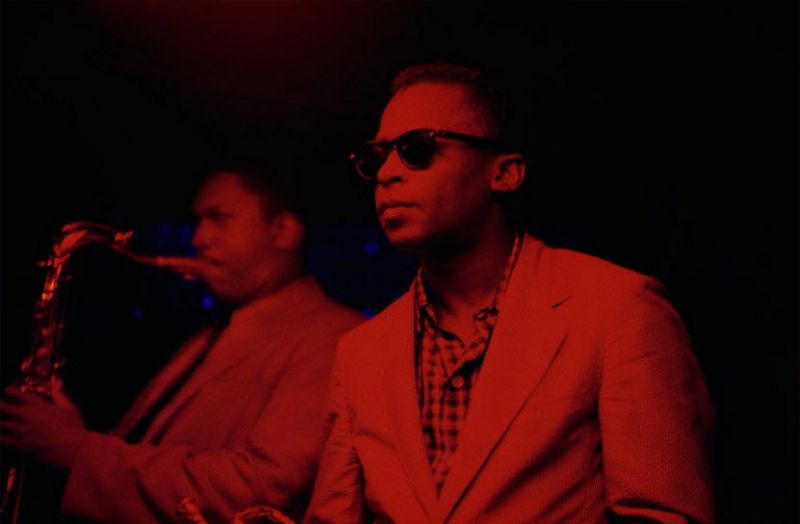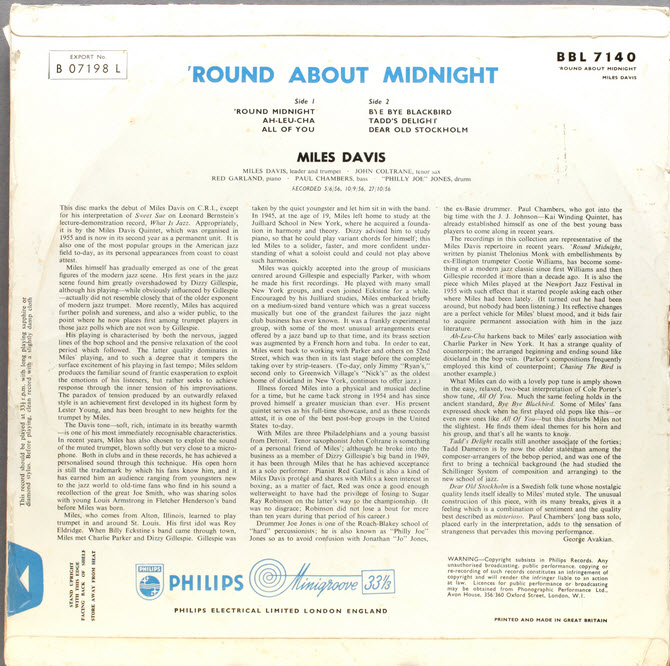There’s little else to say except that ‘Round About Midnight is among the most essential of Davis’ Columbia recordings.
~Thom Jurek (allmusic.com)An absolute classic of modern jazz, with brilliant solo work from the leader and from Coltrane, who was preparing for his own solo career at this point, plus subtle backing from the rhythm section. Tunes range from Monk’s famous title track to the ancient standard “Bye Bye Blackbird.”
~Wilson & Alroy’s Record ReviewsStylistically, Midnight encompasses standards (or soon-to-be standards) such as “Dear Old Stockholm”, “Bye-Bye Blackbird”, Tadd Dameron’s “Tadd’s Delight”, and Jackie McLean’s forward-thinking composition “Little Melonae.” Miles and company reprise “Budo” from the historic Birth of the Cool sessions. The standout track is Davis’s Harmon-muted reading of Thelonious Monk’s ballad, “‘Round Midnight”, which is still a Miles standard bearer… If you want to hear the origins of post-bop modern jazz, this is it.
~Eugene Holley, Jr.
‘Round Midnight:
| Released | March 18, 1957 |
|---|---|
| Recorded | October 26, 1955; June 5 and September 10, 1956 30th Street Studios (New York, New York) |
| Genre | Hard bop |
| Length | 38:47 |
| Label | Columbia CL-949 |
| Producer | George Avakian |
‘Round About Midnight is an album by jazz musician Miles Davis. It was his debut on Columbia Records, and was originally released in March 1957 (CL 949). The album took its name from the Thelonious Monk song “‘Round Midnight”. Recording sessions took place at Columbia Studio D on October 26, 1955, and at Columbia’s 30th Street Studio on June 5 and September 10, 1956.
Although it had a lukewarm reception upon its release, ‘Round About Midnight has since been regarded by critics as a masterpiece of the hard bop genre and one of the greatest jazz albums of all time. On April 17, 2001, Sony reissued the album for compact disc on its Columbia/Legacy label, which featured 24-bit remastering and included bonus tracks and master takes from the initial sessions. A further two-disc reissue on June 14, 2005, was released, as part of Sony’s Legacy Edition series, which featured the 2001 reissue and a second disc containing Davis’ celebrated Newport Jazz Festival of 1955 performance of “‘Round Midnight”, along with a recording of the quintet’s set from the 1956 Pacific Jazz Festival.
Bye Bye Blackbird:
Conception:
At the Newport Jazz Festival in 1955, Davis performed the song “‘Round Midnight” as part of an all-star jam session, with the song’s composer Thelonious Monk, along with Connie Kay and Percy Heath of the Modern Jazz Quartet, Zoot Sims, and Gerry Mulligan. Davis’s solo received an extremely positive reception from many jazz fans, and critics. It was viewed as a significant comeback and indication of a healthy, drug-free Miles (he had in fact been free from heroin addiction for well over a year). Miles’s response to this performance was typically laconic: “What are they talking about? I just played the way I always play.” George Avakian of Columbia Records was in the audience, and his brother Aram persuaded him that he ought to sign Davis to the label. Davis was eventually signed to Columbia Records, and was able to form his famous “first great quintet” with John Coltrane on saxophone. ‘Round About Midnight was to be his first album for his new label.
Track Listing:
Side one
- “‘Round Midnight” (Monk, Williams) – 6:00
- “Ah-Leu-Cha” (Parker) – 5:55
- “All of You” (Porter) – 7:05
Side two
- “Bye Bye Blackbird” (Henderson) – 7:59
- “Tadd’s Delight” (Dameron) – 4:33
- “Dear Old Stockholm” (Traditional, arranged by Getz) – 7:55
Musicians
- Miles Davis – trumpet
- John Coltrane – tenor saxophone
- Red Garland – piano
- Paul Chambers – bass
- Philly Joe Jones – drums
Considered by most to be one of the pinnacles of the hard bop era, the song selection on Midnight represents a summation of the earlier bebop era, with the performances tempered by Davis’ inherent lyricism but rooted in the new style as promoted by hard bop pioneers Art Blakey and Horace Silver with the Jazz Messengers, and the Max Roach/Clifford Brownquintet, in 1956 featuring ex-Davis foil Sonny Rollins. Coltrane had yet to become an iconic figure in jazz history, his presence in the Davis Quintet a let-down to many in lieu of the aforementioned Rollins. His style, while embryonically frenetic and searching, was not quite the sheets of sound approach celebrated later in the decade. In April 1957, Coltrane’sheroin use would lead to his leaving Davis and working with Monk, and under Monk’s tutelage the saxophonist’s playing style solidified considerably.
Spotify:
Sources: Wikipedia & allmusic.com.
Other March 18:
- The Late Wilson Pickett was born in 1941
— - James McMurtry (born March 18, 1962 in Fort Worth, Texas) is a Texas rock/Texas Country singer, songwriter, guitarist, bandleader and occasional actor (Daisy Miller, Lonesome Dove). He performs with veteran bandmates and rhythm section The Heartless Bastards (Darren Hess and Ronnie Johnson – not to be confused with the Cincinnati, OH, band of nearly the same name, Heartless Bastards.
His father, novelist Larry McMurtry, gave him his first guitar at age seven. His mother, an English professor, taught him how to play it: “My mother taught me three chords and the rest I just stole as I went along. I learned everything by ear or by watching people.”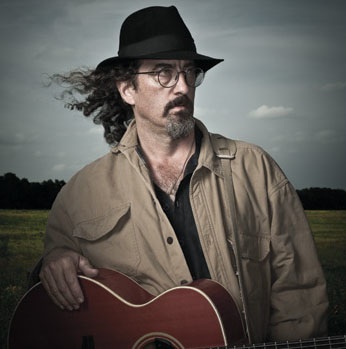
- William Richard “Bill” Frisell (born March 18, 1951) is an American guitarist, composer and arranger.One of the leading guitarists in jazz since the late 1980s, Frisell’s eclectic music touches on progressive folk, classical music, country music, noise and more. He is known for using an array of effects to create unique sounds from his instrument.
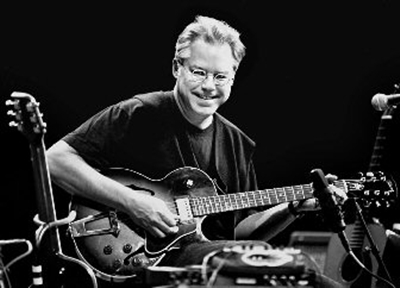
- John Edmund Andrew Phillips (August 30, 1935 – March 18, 2001), was an American singer, guitarist, songwriter and promoter, most notably of the 1967 Monterey Pop Festival. Known as Papa John, Phillips was a member and leader of the singing group The Mamas & the Papas. He was the father of Jeffrey, Mackenzie, Chynna, Tamerlane, and Bijou Phillips.
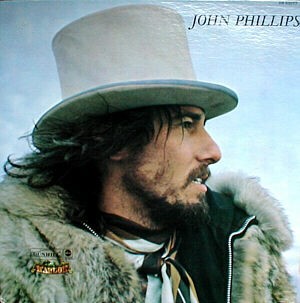
- Charley Frank Pride (born March 18, 1938) is an American country music singer. His smooth baritone voice was featured on thirty-nine number-one hits on the Billboard Hot Country Songs charts. His greatest success came in the early- to mid-1970s, when he became the best-selling performer for RCA Records since Elvis Presley. His chart success and recordings since the late 1980s have been sporadic, but Pride continued touring successfully.
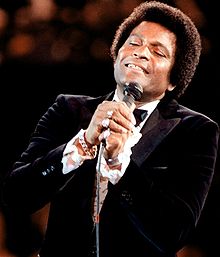
-Egil
